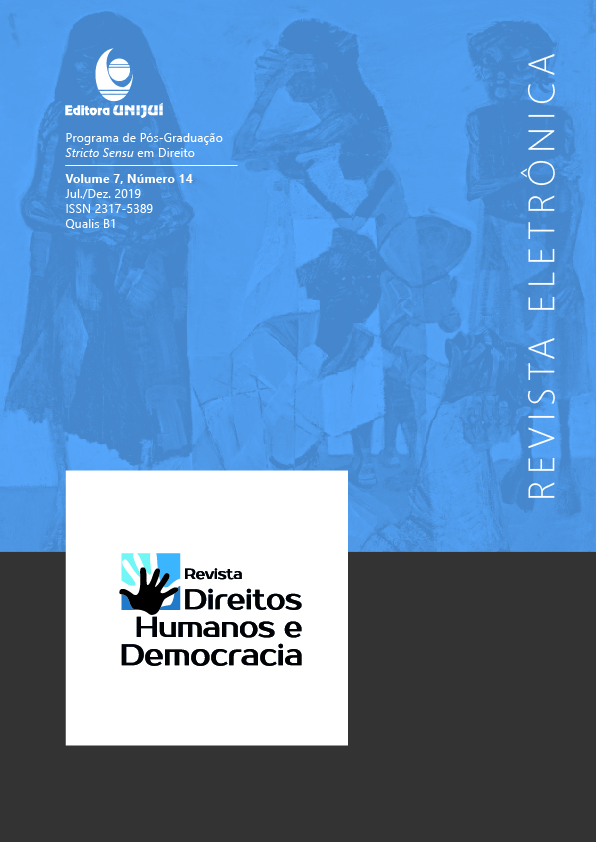TRÁFICO DE PESSOAS: UMA ANÁLISE DA LEI Nº 13.344/2016 À LUZ DOS DIREITOS HUMANOS
DOI:
https://doi.org/10.21527/2317-5389.2019.14.187-200Abstract
A presente produção busca tratar do tema tráfico de pessoas sob a nova ótica da lei nº 13.344 de 2016 especialmente sob suas novas formas de proteção e prevenção do crime, com o objetivo de compreender de que forma esse novo regulamento retrata disposições de cunho internacional e constitucional na medida de coibir violações a direitos humanos, em especial, a dignidade humana. Tratando, assim, das previsões de direitos humanos contra tráfico de pessoas, assim como as novas diretrizes, princípios e estruturação da norma, bem como com a devida discussão crítica de direitos humanos fundamentais que se encaixa nela, o objetivo é verificar se a nova norma brasileira possui instrumentos que atendam aos preceitos internacionais e cumpra o papel protetivo adequadamente. Para isso foi utilizada a metodologia baseada numa análise bibliográfica, de método dedutivo, em cima de arcabouço bibliográfico sobre teóricos dos direitos humanos, além da análise da lei em si, para atingir o cerne do problema apresentado.
Downloads
Published
How to Cite
Issue
Section
License
By publishing in the Revista Direitos Humanos e Democracia, authors agree to the following terms:
Articles are licensed under the Creative Commons Atribuição 4.0 Internacional (CC BY 4.0), which allows:
Share — copy and redistribute the material in any medium or format;
Adapt — remix, transform, and build upon the material for any purpose, including commercial use.
These permissions are irrevocable, provided the following terms are respected:
Attribution — authors must be properly credited, with a link to the license and indication of any modifications made;
No additional restrictions — no legal or technological measures may be applied that restrict the use permitted by the license.
Notices:
The license does not apply to elements in the public domain or covered by legal exceptions.
The license does not grant all rights required for specific uses (e.g., image rights, privacy, or moral rights).
The journal is not responsible for opinions expressed in the articles, which remain the sole responsibility of the authors. The Editor, with the support of the Editorial Committee, reserves the right to suggest or request modifications when necessary.
Only original scientific articles presenting research results of interest, not previously published or simultaneously submitted to another journal with the same purpose, will be accepted.
References to trademarks or specific products are intended solely for identification purposes and do not imply any promotional endorsement by the authors or the journal.
License Agreement: Authors retain copyright over their articles and grant the Revista Direitos Humanos e Democracia the right of first publication.













